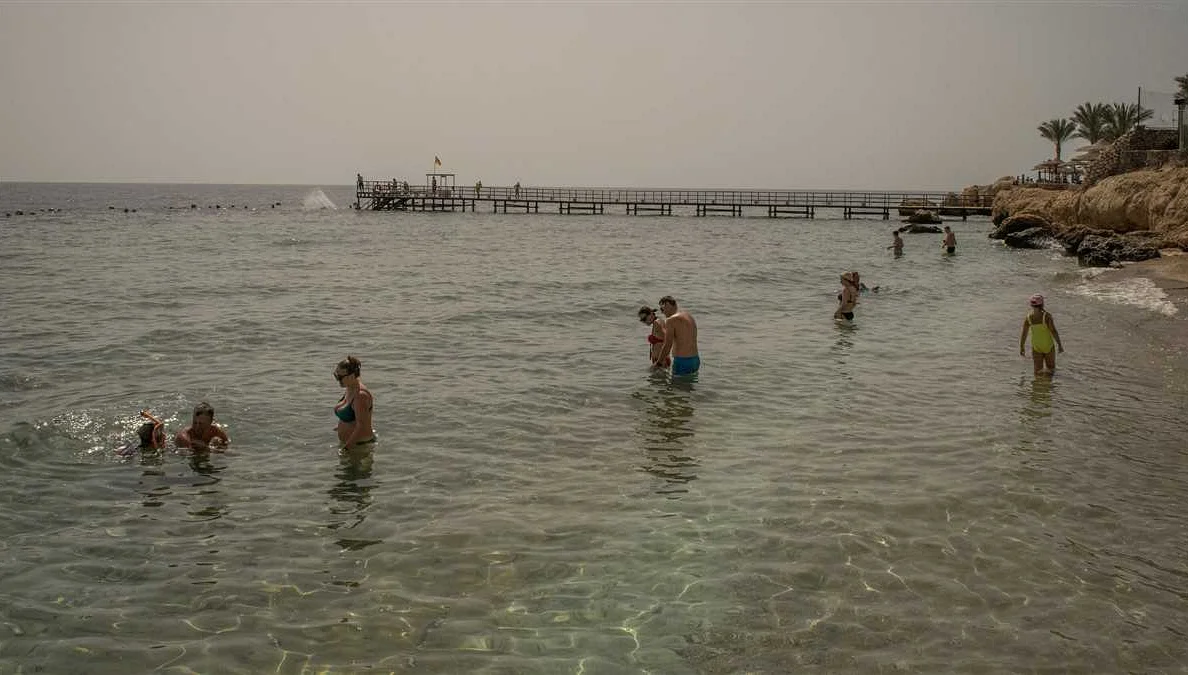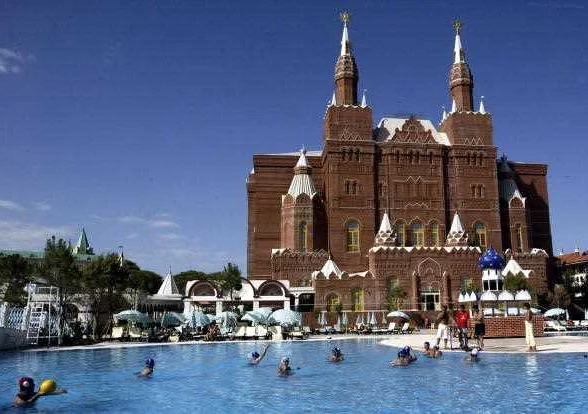Common Infections Affecting the Health of Russian Tourists at Popular Resorts
Содержимое
Learn about the various infections that pose a health threat to Russian tourists at popular resorts. Discover how to stay safe and protect yourself from these infections while on vacation.
When planning a vacation, many Russian tourists dream of relaxing and enjoying their time at a popular resort. However, it is important to be aware of the potential health risks that can arise from visiting these destinations. While resorts often provide a luxurious and comfortable experience, they can also be hotbeds for various infections. In this article, we will explore some of the common infections that Russian tourists may encounter during their trips and discuss ways to minimize the risk of contracting them.
One of the most common infections that tourists may encounter at popular resorts is traveler’s diarrhea. This condition, also known as turista, can be caused by consuming contaminated food or water. The symptoms include abdominal pain, nausea, vomiting, and frequent loose stools. To minimize the risk of encountering this infection, it is important to only consume properly cooked and washed food, avoid tap water, and use bottled water for drinking and brushing teeth.
Another infection that Russian tourists should be aware of is respiratory infections, such as the common cold or flu. These infections can spread easily in crowded resort areas, especially during peak travel seasons. It is important to practice good hygiene, such as washing hands frequently with soap and water or using hand sanitizer, to prevent the spread of respiratory infections. Additionally, getting vaccinated against the flu before traveling can provide an added layer of protection.
Sexually transmitted infections (STIs) are also a concern for Russian tourists visiting popular resorts. Engaging in unprotected sexual activities with multiple partners can increase the risk of contracting STIs, such as chlamydia, gonorrhea, or HIV. It is important to practice safe sex by using condoms and getting tested regularly for STIs to protect both oneself and others.
By being aware of these common infections and taking necessary precautions, Russian tourists can enjoy their vacations at popular resorts without compromising their health. Remember to prioritize personal hygiene, be cautious of what you consume, and practice safe sex. With proper knowledge and preventive measures, you can ensure a safe and enjoyable trip to your dream destination.
Common Infections in Popular Resorts

When traveling to popular resorts in Russia, it is important for tourists to be aware of the common infections that can pose a health risk. By understanding these infections, tourists can take necessary precautions to protect themselves and have a safe and enjoyable trip.
1. Gastrointestinal Infections: Gastrointestinal infections, such as food poisoning and traveler’s diarrhea, are common in popular resorts. These infections are often caused by consuming contaminated food or water. To prevent gastrointestinal infections, tourists should avoid consuming raw or undercooked food, drink bottled water, and practice good hygiene, such as washing hands regularly.
2. Respiratory Infections: Respiratory infections, including the common cold and influenza, can easily spread in crowded resorts. Tourists should be cautious and take necessary precautions, such as washing hands frequently, avoiding close contact with sick individuals, and getting vaccinated before traveling to minimize the risk of respiratory infections.
3. Sexually Transmitted Infections: Sexually transmitted infections (STIs) are a concern in any tourist destination, including popular resorts. Tourists should practice safe sex by using condoms and getting tested regularly to reduce the risk of STIs.
4. Vector-borne Infections: Vector-borne infections, such as tick-borne encephalitis and Lyme disease, can be a risk in certain resorts, especially in rural areas. Tourists should take precautions, such as wearing long sleeves and pants, using insect repellent, and checking for ticks regularly to prevent vector-borne infections.
5. Skin Infections: Skin infections, such as fungal infections and sunburns, are common in popular resorts due to increased exposure to sun, water, and shared facilities. Tourists should protect their skin by using sunscreen, wearing protective clothing, avoiding sharing personal items, and practicing good personal hygiene.
6. Urinary Tract Infections: Urinary tract infections (UTIs) can occur in resorts due to factors such as dehydration, poor hygiene, and prolonged sitting in wet swimsuits. Tourists should stay hydrated, practice good hygiene, and change out of wet swimsuits promptly to reduce the risk of UTIs.
By being aware of these common infections and taking necessary precautions, tourists can have a safe and healthy trip to popular resorts in Russia.
Health Risks for Russian Tourists

Russian tourists traveling to popular resorts are exposed to a variety of health risks. While many vacationers focus on the excitement and relaxation of their trip, it is important to be aware of potential infections that can impact your well-being. Here are some common health risks that Russian tourists should be mindful of:
1. Foodborne Illnesses: Consuming contaminated food or water can lead to gastrointestinal infections such as traveler’s diarrhea, hepatitis A, and typhoid fever. It is crucial to practice good hygiene and opt for reputable food establishments to reduce the risk of food poisoning.
2. Mosquito-Borne Diseases: Popular resort destinations often have a higher presence of mosquitoes, which can transmit diseases such as Zika virus, dengue fever, and West Nile virus. Taking precautions such as wearing mosquito repellent and protecting yourself with appropriate clothing can help minimize the risk of mosquito-borne infections.
3. Sexually Transmitted Infections: Engaging in sexual activities while on vacation can put you at risk of contracting sexually transmitted infections (STIs) such as gonorrhea, chlamydia, and HIV. Practicing safe sex by using condoms and getting tested regularly can help safeguard your sexual health.
4. Respiratory Infections: Close proximity to other travelers and exposure to crowded areas can increase the risk of respiratory infections like influenza and the common cold. Maintaining good hand hygiene and practicing respiratory etiquette, such as covering your mouth and nose when coughing or sneezing, can help prevent the spread of these infections.
5. Waterborne Infections: Swimming in contaminated water or drinking untreated water can lead to infections such as swimmer’s ear, gastroenteritis, and parasitic infections. It is advisable to avoid swimming in stagnant or visibly polluted water sources and to drink only bottled or treated water.
Overall, being aware of these health risks and taking appropriate preventive measures can help Russian tourists enjoy a safe and healthy vacation. Consulting with a healthcare professional before traveling and staying updated on recommended vaccinations and health advisories for your destination is also highly recommended.
Prevention of Infections

When traveling to popular resorts in Russia, it is important to take steps to prevent common infections that can pose a health risk. By following these prevention measures, tourists can minimize their chances of getting sick and enjoy a safe and healthy vacation.
1. Practice good hygiene:
Washing hands frequently with soap and water for at least 20 seconds can help prevent the spread of germs. It is especially important to wash hands before eating or preparing food, after using the restroom, and after touching surfaces in public areas.
2. Stay updated on vaccinations:
Before traveling to Russia, it is recommended to check if there are any specific vaccinations required or recommended for the particular region or resort you are visiting. Getting vaccinated can provide protection against certain infections.
3. Avoid contact with sick individuals:
If someone around you is displaying symptoms of illness, such as coughing, sneezing, or fever, try to maintain a safe distance to avoid getting infected. Also, avoid touching your face with unwashed hands as it can transfer germs to your mouth, eyes, or nose.
4. Use insect repellent:
Insect bites can transmit diseases, so it is important to use insect repellent when outdoors, especially in areas known to have a high mosquito population. Wearing long sleeves and pants can provide additional protection.
5. Drink bottled or boiled water:
To avoid waterborne infections, it is advisable to drink bottled water or use water that has been boiled or treated with water purification tablets. This includes using bottled water for brushing teeth and avoiding ice cubes in drinks.
6. Practice safe sex:
Engaging in unprotected sexual activity can increase the risk of sexually transmitted infections. It is important to use condoms consistently and correctly to reduce the chances of contracting or spreading infections.
7. Seek medical attention if needed:
If you develop symptoms of any infection during your trip, seek medical attention promptly. Early diagnosis and treatment can help prevent complications and ensure a swift recovery.
By following these prevention measures, tourists can reduce their risk of contracting common infections and enjoy a safe and healthy vacation in popular resorts in Russia.
Mosquito-Borne Diseases

Mosquito-borne diseases are a significant health risk for Russian tourists visiting popular resorts. Mosquitoes are prevalent in many warm and tropical destinations, and they can transmit various diseases through their bites. Here are some common mosquito-borne diseases that tourists should be aware of:
- Malaria: Malaria is a potentially life-threatening disease caused by parasites transmitted through the bites of infected mosquitoes. Symptoms of malaria include fever, chills, headache, and body aches. It is important for tourists to take preventive measures such as using mosquito repellents and sleeping under mosquito nets in malaria-endemic areas.
- Dengue Fever: Dengue fever is another viral infection transmitted by mosquitoes. It causes flu-like symptoms, including high fever, severe headache, joint and muscle pain, and rash. There is no specific treatment for dengue fever, so prevention is key. Tourists should avoid mosquito bites by using repellents, wearing long sleeves and pants, and staying in accommodations with screens or air conditioning.
- Zika Virus: Zika virus is a mosquito-borne disease that can cause birth defects in infants born to infected mothers. It can also lead to neurological complications in adults. The symptoms of Zika virus infection are mild and include fever, rash, joint pain, and red eyes. Pregnant women or those planning to become pregnant should avoid traveling to areas with ongoing Zika virus transmission.
- Chikungunya: Chikungunya is a viral disease transmitted by mosquitoes. It causes fever and severe joint pain, often accompanied by headache, muscle pain, and rash. The joint pain can be debilitating and last for weeks or months. There is no specific treatment for chikungunya, so prevention is crucial. Tourists should take precautions to avoid mosquito bites, such as using repellents and wearing protective clothing.
Preventing mosquito bites is the best way to reduce the risk of these diseases. Tourists should use mosquito repellents containing DEET or other approved ingredients, wear clothing that covers the skin, and stay in accommodations with proper mosquito control measures. It is also important to be aware of the local mosquito breeding sites, such as stagnant water, and take appropriate actions to eliminate them.
While enjoying their vacation, Russian tourists should be proactive in protecting themselves from mosquito-borne diseases. By taking preventive measures and staying informed about the local health risks, they can minimize the chances of falling ill and ensure a safe and enjoyable trip.